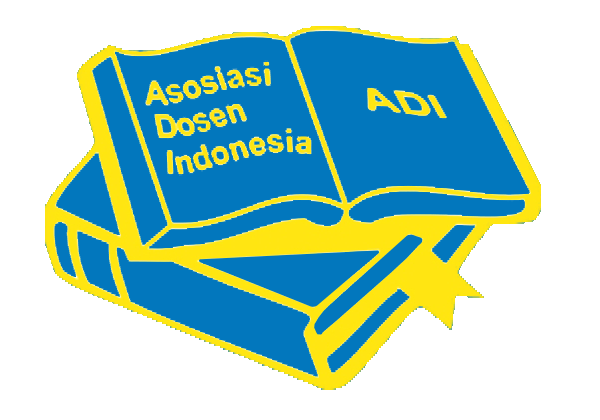What is the Personal Health Knowledge Level of Grade VI Students? An Investigation of Grade VI Students at Mangunharjo Elementary School
Abstract
The purpose of this study was to determine the level of personal health knowledge of class VI students at SD Mangunharjo. The method used is descriptive quantitative. The population and research sample were all 18 students of class VI at SD Mangunharjo. The data collection technique uses a questionnaire consisting of 6 indicators. Data analysis technique uses descriptive quantitative by calculating the mean value and standard deviation. The results of the study stated that the level of student knowledge in terms of personal hygiene indicators was in the moderate category, the indicators of regular living habits were in the moderate category, the food indicators were in the moderate category, environmental hygiene was in the medium category, disease prevention was in the moderate category, and health examination is in the moderate category. It can be concluded that the level of personal health knowledge of class VI students at SD Mangunharjo is in the moderate category.
References
Azwar, S. (2017). Metode penelitian psikologi. Yogyakarta: Pustaka Pelajar.
Dewadi, F. M., Karim, A., Inayah, R., Arafajah, & Aini, L. (2021). The Effect of Healthy Education on the Improvement of Knowledge About Behavior Clean Healthy Living in Elementary School 1 Serut Panti Jember. The Indonesian Journal of Health Science, 3(September), 15–23.
Hamdi, A. S., & Bahruddin, E. (2015). Metode penelitian kuantitatif aplikasi dalam pendidikan. Deepublish.
Ismail, M. J. (2021). Pendidikan Karakter Peduli Lingkungan Dan Menjaga Kebersihan Di Sekolah. Guru Tua : Jurnal Pendidikan Dan Pembelajaran, 4(1), 59–68. https://doi.org/10.31970/gurutua.v4i1.67
Kholifah, N., & Yudhastuti, R. (2016). Risiko penularan demam berdarah dengue (DBD) di sekolah dasar di Kelurahan Putat Jaya, Surabaya. Jurnal Ilmiah Kesehatan Media Husada, 5(2), 95-106. https://doi.org/10.33475/jikmh.v5i2.170
Luthfi, M., JPDO, P. P.-J., & 2019, undefined. (2019). Pengetahuan Siswa Tentang Kesehatan Pribadi Kelas V Sekolah Dasar Negeri 14 Olo Padang Barat. Jpdo.Ppj.Unp.Ac.Id, 2(2), 1–5. http://jpdo.ppj.unp.ac.id/index.php/jpdo/article/view/178
Meriska, I., Pramudho, K., & Murwanto, B. (2014). Perilaku Sarapan Pagi Anak Sekolah Dasar. Jurnal Kesehatan, 5(1), 90–97. http://poltekkes-tjk.ac.id/ejurnal/index.php/JK/article/view/72
Muhtar, T., & Lengkana, A. S. (2021). Kesehatan Dalam Pendidikan Jasmani. CV Salam Insan Mulia.
Onibala, C. M., Rambitan, M. F., & Toar, J. (2021). Hubungan Pengetahuan Perilaku Hidup Bersih Dan Sehat Dengan Kebersihan Pribadi Siswa Di Sd Gmim 2 Tondano Kabupaten Minahasa. Jurnal Kesehatan Masyarakat UNIMA, 02(02).
Rompis, C., Pangemanan, D., & Gunawan, P. (2016). Hubungan tingkat pengetahuan ibu tentang kesehatan gigi anak dengan tingkat keparahan karies anak TK di Kota Tahuna. e-GiGi, 4(1). https://doi.org/10.35790/eg.4.1.2016.11483
Sabani, F. (2019). Perkembangan Anak-anak Selama Masa Sekolah Dasar (6–7 Tahun). Didaktika: Jurnal Kependidikan, 8(2), 89-100. https://doi.org/10.58230/27454312.71
Sari, I. P. T. P. (2013). Pendidikan Kesehatan Sekolah Sebagai Proses Perubahan Perilaku Siswa. Jurnal Pendidikan Jasmani Indonesia, 9(2), 141–147. https://journal.uny.ac.id/index.php/jpji/article/viewFile/3017/2510
Sudjana, B., Afriandi, I., & Djais, J. T. B. (2016). Correlation of Personal Hygiene Knowledge, Attitude and Practices among School Children in Sumedang, Indonesia. Althea Medical Journal, 3(4), 549–555. https://doi.org/10.15850/amj.v3n4.937
Sulastri, S., Nopiyanto, Y. E., Nevitasari, D., Muklis, J., & Marlina, L. (2022). Sosialisasi Kesehatan Diri Pada Anak-Anak di Sekolah Dasar Negeri 62 Lebong. Jurnal Dharma Pendidikan Dan Keolahragaan, 2(1), 28–34. https://doi.org/10.33369/dharmapendidikan.v2i1.21504
Suryandi, A., Hariyanto, T., & Metrikayanto, W. D. (2018). Perbedaan konsumsi sayur sebelum dan sesudah pendidikan kesehatan dengan metode storytelling pada anak sekolah dasar di SDN Mulyoagung 04 Dau Malang. Nursing News, 3(1), 237–246.
Triani, E., Hidajat, D., Setyorini, R. H., & Cenderadewi, M. (2017). Hubungan Kebersihan Pribadi dan Sanitasi Lingkungan dengan Kejadian Skabies pada Anak-anak di Panti Asuhan Al Hidayah Mataram. Unram Medical Journal, 6(2), 9. https://doi.org/10.29303/jku.v6i2.124
Widya Safitri Aryanti, A. F. Z. (2020). Menjaga Kebersihan Sekolah dan Karakter Peduli Lingkungan Bagi Murid MI/SD Di Indonesia. Jurnal Edukatif, VI(1), 76–85. https://doi.org/10.37567/jie.v6i1.110
Copyright (c) 2023 Jp.jok (Jurnal Pendidikan Jasmani, Olahraga dan Kesehatan)

This work is licensed under a Creative Commons Attribution-ShareAlike 4.0 International License.
Authors retain copyright and grant the journal right of first publication with the work simultaneously licensed under a Creative Commons Attribution 4.0 International License that allows others to share the work with an acknowledgement of the work's authorship and initial publication in this journal.





.png)






